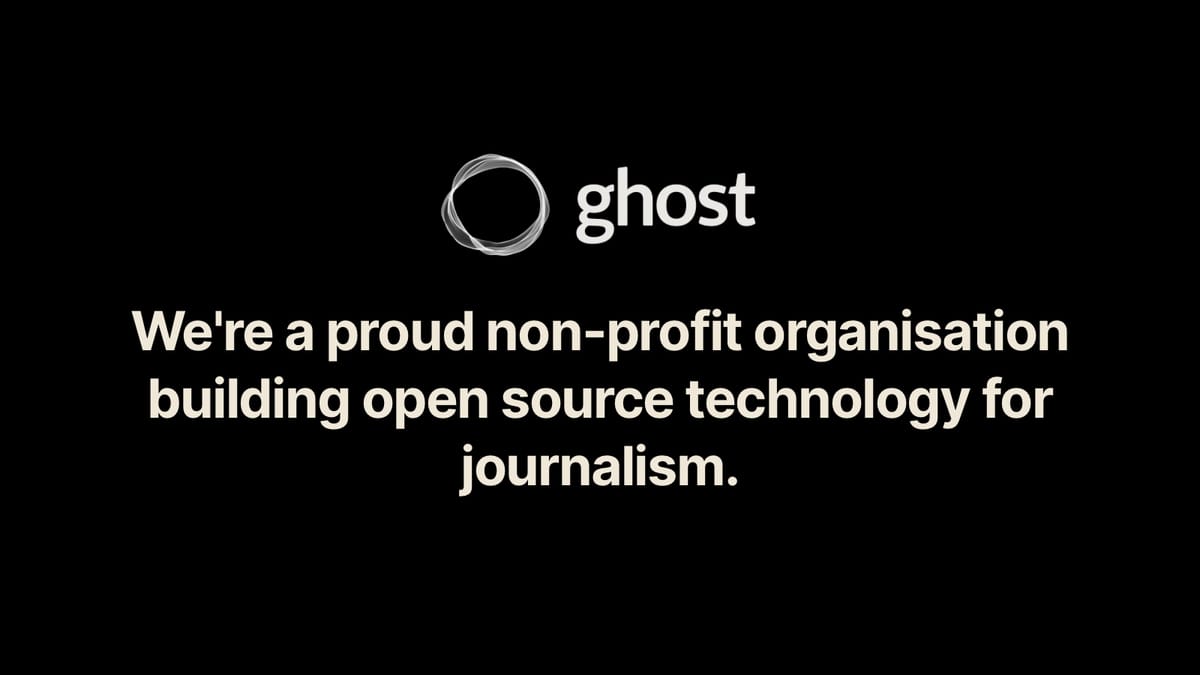Back to blogging
Why I settle with Ghost for blogging.

Ownership of online platforms can change and it's content may disappear but a personal blog remains and the content of it will be backed up by the Internet Archive. After several years on Tumblr and experiments with Wordpress I'm going to settle with Ghost, because it is an open source application, funded by a premium platform as a service. That means all data created over here is not locked-in to the service and I can migrate from the service to a self hosted solution every time if I wanted to.
What is important to me is not just the service and its features itself but the context of the business and the attitude of the founder to make it happen. From an interview with Ghost CEO John O’Nolan (paywalled though):
Ghost is a not-for-profit organization: there are no shareholders, the entity is entirely independent, it can never be bought or sold. If at any point I want to step down, I can hand over my trusteeship to someone else but I can’t “cash out”, as it were. So we have a company constitution which defines what the organization can spend money on and how all of those bylaws fit together, but there are no shareholders and there is no share capital, so even if someone offered to invest, there is no mechanism by which to take any money or to give any ownership stake.
So my long term goal is for this to be a company and a product which is around for fifty, a hundred years. I’ve deliberately structured it at every juncture in a way to try and prevent myself from becoming enormously wealthy from it because I feel like the more my interests align with the customer’s interests, the more likely the business is to serve the interests of its users and not just focus on whatever is necessary to raise the next largest round or get the biggest acquisition number. My personal interest is deeply in publishing, it’s deeply in journalism, it’s deeply in seeing independent voices be able to have something meaningful to say in the world and to be able to sustain themselves doing it, and that’s what we optimize most of our product and business decisions around.
The big takeaway and strength that you have is in the open source license and the fact that you own the data and everything going on. So if I’m hit by a bus, if my whole team was hit by a bus, and we go out of business, what you have to do is go out and find a Javascript developer of which there are more in the world than any other language that exists, and they can then work with the code which is all MIT license and you have every part of it — you not only own it but you also have the license to it. So, the long game is that you can have anyone maintain this if you want to.
That sort of responsible ownership is rare to say the least. Also I find the Ghost business model for independent publishers very interesting. Perhaps it can prove useful for other projects in the future. In the meantime, I may republish some older blog posts with their original timestamps for better context.




